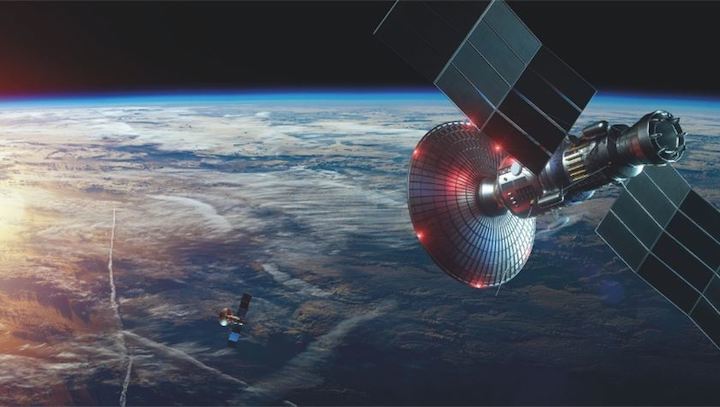30.12.2020
The EU’s Space Industry is set to relaunch and expand its horizons. But, argues Marian-Jean Marinescu, the sector needs a post-COVID helping hand with funding.

Although space technology actually ‘is’ rocket science - and often feel like it’s only accessible to scientists – it’s actually a lot closer to us than we think. We rely on space technology several times every single day: for car navigation systems, satellite TV, mobile phones and even for withdrawing money. We also have satellites that provide speedy data when forest fires, earthquakes or floods strike.
The space industry creates almost ten percent of the European Union’s GDP and it is worth between €46-54bn to our economy. It also provides more than 230,000 jobs in fields like space operations, downstream services and manufacturing. Space technology also contributes to the EU’s flagship programmes, such as helping to deliver on the European Green Deal’s goals through services and data provided for Earth observation and global positioning.
“We need to invest in space technology to ensure economic security and to keep us competitive with the other space powers; the US, Russia and China”
We should also think of how best to use Earth observation and geospatial intelligence to improve EU Member States’ compliance with the Green Deal’s policies and national targets. As chair of the Sky and Space Intergroup, I have drawn attention to the need to separate the impact of the COVID-19 crisis from the future of this industry.
The Coronavirus pandemic will disappear, but the European Space Industry is here to stay, relaunch and expand. Therefore, we have to treat them separately. The European space industry has been affected little by the COVID-19 crisis – at least perhaps not as much as aviation or tourism - but it has had negative consequences.
However, I think it also has the chance to recover quicker than other sectors of the European economy. Space is currently in a stronger position than a sector like aviation, as funding does not depend on passengers, and because in large part it has been financed by the European Union. At a time of strong global competition in space, I believe two issues are a priority.
The first is to promote space technology, including at the legislative level and in particular the clarification of responsibilities between the European Space Agency (ESA) and the European Agency for Global Navigation Satellite Systems (GSA). The second is financing - and not just about the amounts allocated, but also about greater adequacy of European financial instruments. For example, the space industry is not yet included in the InvestEU programme, a source of funding that could become a window of opportunity for investment in space infrastructure.
The Recovery and Resilience Facility is also essential for the economic recovery of the space sector. Had my proposal for inclusion in the Recovery Facility’s projects with European Added Value - joint projects between several Member States - been accepted, I am sure that we would have seen an even faster economic recovery. However, the desire of EU Member States to maintain their freedom in directing European funds prevailed. The space industry could benefit hugely from being included in such projects. Another priority is shaping the Horizon Europe research framework programme, through properly preparing partnerships. Within the Sky and Space Intergroup, we organised a conference on European Joint Undertakings, funded by the EU and by industries in each field. It is a pity that the European Commission did not establish a Joint Undertaking for space.
The future of the space industry is separate from effort to combat the pandemic. Our priorities for the future are digitalisation, as well as the industry contribution to achieving the Ecological Pact through the Copernicus programme. It is also essential to focus our efforts on developing applications that further enhance the current Copernicus and Galileo programmes and to ensure the funding and development of the Government Satellite Communication (GovSatcom).
Systems need to be properly financed and implemented because they bring great economic benefits. The EU has several sources of funding for space policy: the Space Programme (which includes Galileo, Copernicus, EGNOS and - I hope – GovSatcom); the EU Horizon Programme (where funds are allocated for space research) and the InvestEU Programme.
“Collaboration is essential if the European space sector want to be a world space power; it is a question of both our level of ambition and of the security of the continent and the safety of its citizens”
We need to invest in space technology to ensure economic security and to keep us competitive with the other space powers; the US, Russia and China. I am concerned that we do not yet have a joint declaration from the 10th EU-ESA Space Council in November.
I hope that this is due to the usual process of harmonising Member States’ positions, rather than any difficulties in reaching a common EU vision. Collaboration is essential if the European space sector want to be a world space power; it is a question of both our level of ambition and of the security of the continent and the safety of its citizens.
We must understand that the aerospace sector is an important industry that contributes enormously to the EU’s GDP. We must take this seriously and do our best to take care of it.
